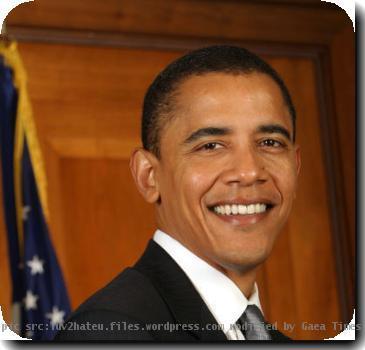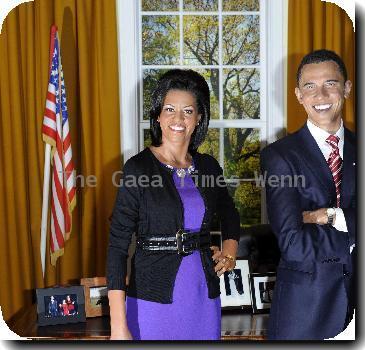Biden steers past tension with Israel over settlement plans, implores steps toward peace
By Josef Federman, APThursday, March 11, 2010
Biden steers past spat over Israel settlement plan
JERUSALEM — Vice President Joe Biden attempted to soothe tensions with Israel on Thursday in a speech extolling the countries’ close relationship, signaling the U.S. wants to move beyond an embarrassing diplomatic spat over settlements that tarnished his three-day visit.
But the warm words, coming after an Israeli move seen as a slap in the face to Biden, could exacerbate Palestinian perceptions that the U.S. is unwilling to take Israel to task.
Biden’s visit, meant to help repair strained ties and boost a coming round of U.S.-mediated peace talks, was instead overshadowed by Israel’s announcement on Tuesday that it plans to build 1,600 new apartments in a Jewish neighborhood in disputed east Jerusalem. The plan drew a sharp condemnation from Biden, and the Palestinians have threatened to pull out of the indirect peace talks before they even begin.
Wrapping up his visit with a speech at Tel Aviv University, Biden reiterated his condemnation of the settlement plan, urging Israelis and Palestinians to avoid acts that could “inflame” the situation.
“I, and at the request of President Obama, condemned it immediately and unequivocally,” he said, noting that as a longtime supporter of Israel, he felt the strong language was necessary. “Quite frankly, folks, sometimes only a friend can deliver the hardest truth,” he said.
But Biden’s speech was devoted heavily to praising the close U.S. relationship with Israel. He said the U.S. has “no better friend” than Israel and said the U.S. “stands resolutely beside Israel against the scourge of terrorism.”
Addressing a key Israeli security concern, Biden also said the U.S. is “determined to prevent Iran from acquiring nuclear weapons.”
He encouraged Israelis and Palestinians to get down to business in resolving their decades-old conflict.
“To end this historic conflict, both sides must be historically bold,” Biden said. “If each waits stubbornly … this will go on and we’ll be waiting for an eternity.”
The Israeli announcement on the planned construction in Jerusalem underscored the U.S. failure to rein in Israeli settlement ambitions over the past year. Announcing the plans while Biden — a longtime supporter of Israel during a three-decade congressional career — was visiting made it even more embarrassing for Washington.
Israeli Prime Minister Benjamin Netanyahu said Thursday he had apologized to the vice president for the poor timing and reprimanded his interior minister, whose office announced the construction plan. He also said it would be several years before the new homes are built. However, Netanyahu gave no sign he would cancel the order or punish anyone for embarrassing Biden.
In his speech, Biden said Netanyahu’s explanation was “significant” and showed the construction plan need not hinder peace talks.
President Barack Obama took office demanding a complete halt to Israeli settlements in the West Bank and east Jerusalem — areas captured from Jordan in the 1967 Mideast war and now claimed by the Palestinians for a future state.
Netanyahu has responded by limiting construction in the West Bank, but the order does not apply to east Jerusalem — the Palestinians’ would-be capital. Israel considers the entire holy city to be its eternal capital.
The planned construction in east Jerusalem has only deepened Palestinian suspicions that Netanyahu is not prepared to make the sweeping concessions needed to reach a deal.
The Palestinians have welcomed Biden’s condemnation of Israel, but urged the Americans to go further by pressing Israel to cancel the Jerusalem settlement plan. Negotiator Saeb Erekat declined to comment when asked if he was disappointed that Biden had not been tougher in his speech Thursday.
“I don’t want to have any quarrel with the Americans at this stage. The problem is not with the timing, but with the settlements. The Americans should help us in getting this order revoked,” he said.
The Palestinians have said they will not resume face-to-face talks with Netanyahu until he freezes all settlement construction. The indirect talks — to be mediated by U.S. envoy George Mitchell — are seen as a way to get around the Palestinian ultimatum.
In the speech, Biden acknowledged that the indirect talks are only a modest beginning. He said the “only path” to resolving the conflict is through direct negotiations.
Biden outlined the contours of what the U.S. believes should be a final settlement. He said a Palestinian state must be based on the pre-1967 borders, with some modifications and strong guarantees for Israel’s security.
He noted that Israel’s continued occupation of some 2.4 million Palestinians threatens Israel’s future as a democracy with a Jewish majority. “The status quo is not sustainable,” he said.
He also urged Israel to embrace the moderate Palestinian leadership in the West Bank, with whom he met on Wednesday. The other Palestinian territory of Gaza is ruled by the Hamas militant group, which Washington shuns and considers a terrorist group.
“Israeli leaders finally have willing partners who share the goal of peace,” Biden said of the West Bank leadership. “Their commitment to peace is an opportunity that must be seized.”
Biden left Israel Thursday for Jordan.
Tags: Barack Obama, International Agreements, Israel, Jerusalem, Middle East, North America, Palestinian Territories, Territorial Disputes, United States, West Bank

